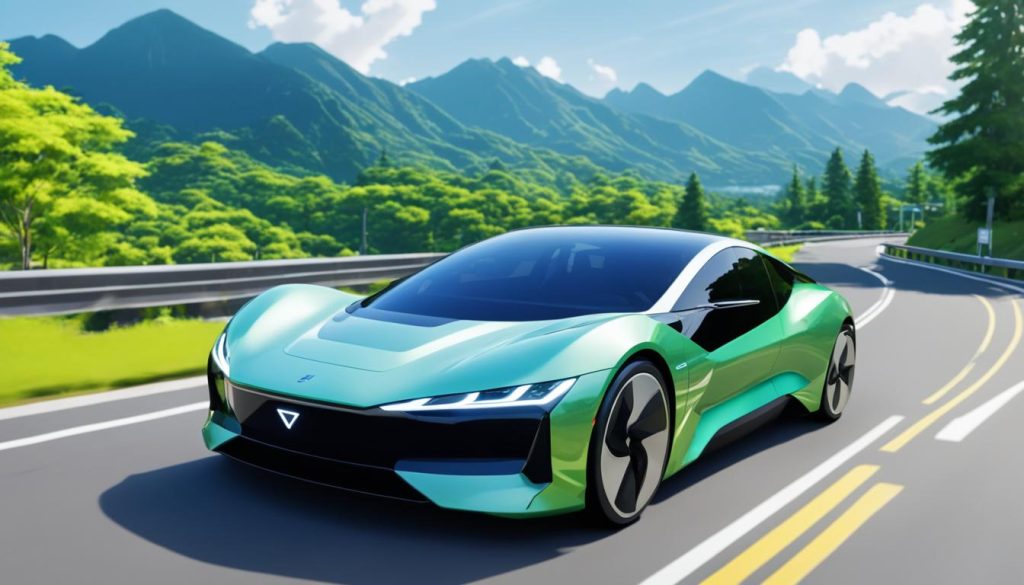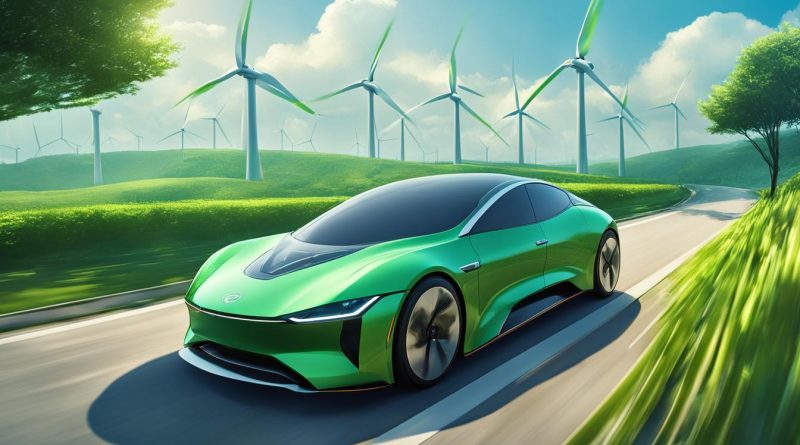Electric Vehicle Guide: Trends & Sustainability
Electric vehicles, or EVs, are emerging as a revolutionary mode of transportation, driven by advanced technology and sustainability measures to reduce carbon emissions and combat climate change. With the global automotive industry transitioning to electric mobility, the popularity of electric cars has surged dramatically in recent years. The electric vehicle market is expected to grow significantly, spurred by governmental incentives to reduce pollution and develop eco-friendly infrastructure.
This guide explores the latest trends in electric vehicle technology and sustainability measures that are shaping the EV market within the transport industry. It analyzes the various benefits and advantages of electric cars, including lower operating costs and eco-friendly credentials, important factors in a world where sustainability concerns are on the rise. It also addresses the current state of the electric vehicle market, infrastructure requirements, and the advancements in EV technology that are driving performance and efficiency improvements.
Key Takeaways:
- Electric cars are becoming increasingly popular due to their advanced technologies and sustainability measures to reduce carbon emissions
- Electric vehicles offer benefits such as lower operational costs and eco-friendly credentials
- The electric vehicle market is expected to grow significantly, driven by government incentives and environmental concerns
- Establishing robust electric vehicle infrastructure is crucial if widespread adoption of EVs is to be successful
- Advancements in EV technology are driving performance and efficiency improvements in electric cars
Understanding Electric Vehicle Technology
Electric vehicles are powered by sophisticated technology that enables drivers to travel using electricity instead of fossil fuels. Advancements in electric vehicle technology are rapidly improving the performance and efficiency of these vehicles.
The primary components that drive electric cars are motors, batteries, and regenerative braking. Electric motors convert electricity stored in the battery into motion, providing the necessary power to move the vehicle forward. The battery is the heart of electric vehicles and stores the required energy to power the motor. Regenerative braking refers to the process of recovering energy when the brakes are applied, which is then stored in the battery for later use.
Recent innovations in electric vehicle technology have led to increased driving range, enhanced battery life, and improved safety features. For example, Tesla’s Model S is equipped with autopilot technology, which uses cameras and sensors to assist drivers in steering, braking, and accelerating. Additionally, plug-in hybrid electric vehicles (PHEVs) and extended-range electric vehicles (EREVs) allow drivers to use both electricity and gasoline for longer journeys.
Electric Vehicle Technology Advancements:
| Advancements in Electric Vehicle Technology | Description |
|---|---|
| Battery Technology | Improvements in battery technology have resulted in increased range and decreased charging times for electric vehicles. |
| Wireless Charging | Developments in wireless charging technology allow for easy, convenient charging of electric vehicles without any cables or plugs. |
| Lightweight Materials | The use of lightweight materials such as carbon fiber and aluminum reduces vehicle weight, resulting in better acceleration and overall performance. |
| V2G Technology | Vehicle-to-grid (V2G) technology allows electric vehicles to store and distribute power to the grid, providing additional cost savings and reducing reliance on traditional power sources. |
Overall, electric vehicle technology is rapidly improving, providing drivers with more efficient, eco-friendly, and cost-effective options for transportation.

Electric Vehicle Charging Solutions
As the popularity of electric vehicles continues to soar, having efficient electric vehicle charging solutions is becoming increasingly important. In this section, we will discuss the various solutions available for electric vehicle charging, including home chargers, public charging stations, and fast charging options.
Home Chargers
Many electric vehicle owners choose to have a home charger installed for convenient charging at home. Home chargers are usually installed by a certified electrician and allow for easy overnight charging, ensuring that your vehicle is fully charged and ready to go every morning. They also eliminate the need for frequent visits to public charging stations.
Public Charging Stations
Public charging stations are widely available in most urban areas, allowing EV owners to charge their vehicles while running errands or during their daily commute. Some public charging stations are free to use, while others may require a fee or subscription. It’s important to plan your route ahead of time to ensure you have the necessary charging options available.
Fast Charging Options
Fast charging options use high voltage charging stations that can charge an electric vehicle quickly, usually within 30 minutes. While these stations are not as widely available as home or public charging stations, they are quickly becoming more common, especially on major highways and interstates.
Establishing a comprehensive charging infrastructure is critical for supporting the widespread adoption of electric vehicles. Governments, automakers and charging station suppliers are working together to build up the charging infrastructure to meet the growing demand for electric vehicle charging. Investing in electric vehicle charging stations is a wise move toward ensuring sustainable transportation and protecting our environment.
Benefits of Electric Vehicles
Electric vehicles are rapidly emerging as a sustainable alternative to traditional gas-powered vehicles. Electric vehicles (EVs) offer several benefits compared to their gasoline counterparts, ranging from environmental and economic advantages to enhanced performance.
Environmental Benefits
EVs are a cleaner and greener alternative to gas-powered vehicles, offering significant environmental benefits. They produce no tailpipe emissions, which help in reducing greenhouse gas emissions and improving air quality. According to recent research, an EV can reduce carbon dioxide emissions by up to 70% over its lifetime compared to a gasoline-powered car.
The image below showcases the difference in tailpipe emissions between a gasoline-powered vehicle and an EV.

Economic Benefits
Aside from environmental benefits, EVs offer significant economic advantages. One of the most significant benefits is lower operating costs compared to gasoline vehicles. EV owners can save on fuel expenses, which can add up to significant savings over time. The average annual fuel cost of an EV is around £500, compared to over £1,500 for gasoline vehicles.
Furthermore, governments worldwide offer incentives to encourage EV adoption. These incentives include tax credits, rebates, and discounts on charging equipment and installation.
Performance and Convenience Advantages
Besides environmental and economic benefits, electric vehicles also offer performance and convenience advantages. They offer superior acceleration and smooth driving performance due to the high torque from the electric motor. Electric vehicles are also quieter and require less frequent maintenance, as they have fewer moving parts compared to gasoline vehicles.
Moreover, with an adequate charging infrastructure, EV owners enjoy the convenience of home charging and flexible charging options while on the go.
Overall, electric vehicles offer a range of benefits, including environmental sustainability, lower operating costs, and enhanced performance. As the popularity of EVs continues to grow globally, the benefits of electric vehicles will have a positive impact on the environment and the economy.
Conclusion
In conclusion, this guide has provided an overview of the latest trends in electric vehicle technology and the role of sustainability in driving the EV market forwards. It has discussed the importance of building a robust electric vehicle infrastructure and the various charging solutions available, including home chargers, public charging stations, and fast charging options.
Furthermore, the guide has explored the numerous benefits and advantages of electric vehicles, including their positive environmental impact, reduced operating costs, and potential government incentives. Electric cars are also increasingly popular due to their improved performance and convenience, making them a viable alternative to traditional petrol or diesel vehicles.
As the world shifts towards clean and sustainable transportation, electric vehicles are set to play a significant role in shaping the future of mobility. Their adoption will not only benefit the environment, but also provide economic advantages and a more enjoyable driving experience for consumers. It is therefore essential that individuals, businesses, and governments continue to support and invest in the development of electric vehicle technology and infrastructure.
FAQ
What is an electric vehicle (EV)?
An electric vehicle, also known as an EV, is a type of vehicle that is powered by electricity instead of traditional fuels like petrol or diesel. It uses electric motors and rechargeable batteries to propel the vehicle.
How does an electric car work?
Electric cars work by storing electricity in rechargeable batteries, which power the electric motor. When the driver activates the accelerator pedal, the electricity is sent from the batteries to the motor, which then turns the wheels, propelling the vehicle forward.
What are the advantages of electric vehicles?
Electric vehicles offer several advantages. They produce zero tailpipe emissions, contributing to improved air quality and reduced environmental impact. Additionally, electric cars have lower operating costs compared to traditional vehicles, thanks to cheaper electricity prices and reduced maintenance requirements.
How long does it take to charge an electric vehicle?
The charging time for an electric vehicle can vary depending on the type of charger used and the capacity of the vehicle’s battery. Standard home chargers usually take several hours to fully charge an EV, while fast chargers can provide a significant charge in as little as 30 minutes.
What is the current state of the electric vehicle market?
The electric vehicle market is experiencing significant growth. With increasing concerns about climate change and a push towards sustainable transportation options, the demand for electric cars is rising. Many countries are also implementing policies and incentives to promote the adoption of electric vehicles.
Is there a sufficient electric vehicle charging infrastructure?
The electric vehicle charging infrastructure is continually expanding, but there is still work to be done. Governments, businesses, and charging network operators are investing in the installation of more charging stations to meet the growing demand. Efforts are being made to establish a comprehensive and accessible charging network to support the widespread adoption of electric vehicles.




